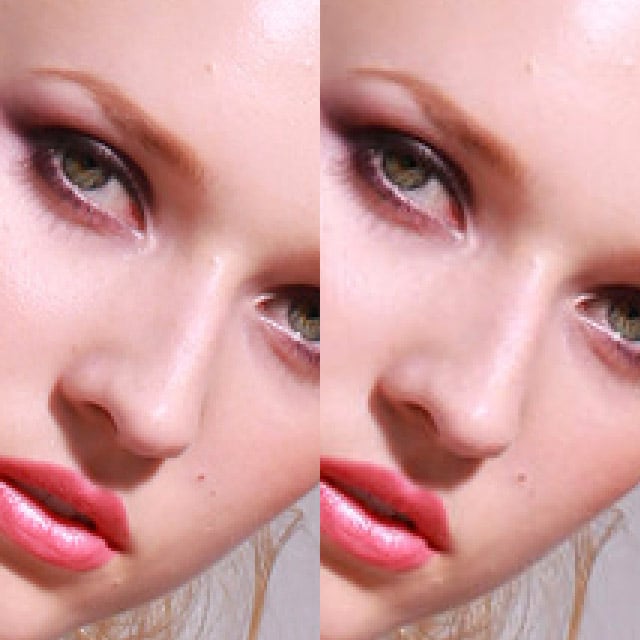Flickr Decreased Quality and Increased Compression, and Users Aren’t Happy
![]()
Last month Flickr proudly announced major new features, a slick new redesign, and 112 million members, but the service may have rolled out a disappointing change as well: increased compression that reduces the quality of photos.
“Somewhere between April 22 and May 5 something was changed,” he writes. “My images look terrible. I’m seeing random artifacts of compression and not that crispness that was one of the last remaining things I liked about uploading to flickr.”
Other users began responding with comparison photos of their own, saying that the change in quality is “unmistakable.”
We wanted to see if things actually changed, so we did some tests of our own. Back in 2012, after the Canon 24-70mm f/4 IS was announced, we uploaded one of Canon’s sample photos to our Flickr account.

We downloaded the original photo from Canon again and uploaded it to Flickr to compare the two versions.
Original Resolution
First, we downloaded the original resolution versions from Flickr at 3840×5760. We found that image quality was identical.

Furthermore, a look at the file sizes confirmed that compression hasn’t changed at all for original resolution images:
![]()
Large Size
Next, we downloaded the Large (1365×2048) size of both versions. Here, we did see a difference in image quality. Here’s a zoomed in comparison:

Notice how in the older upload, much more detail is preserved in the skin and eyelashes on the left. By comparison, the new version on the right appears blurry and soft.
A look at the file sizes confirms it. Increase compression has reduced the size of this Large version from 1.2 megabytes down to 471 kilobytes — a reduction of about 60%!
![]()
Medium Size
Finally, let’s take a look at the Medium, 427×640, size.

Again, we see degraded quality compared to the 2012 upload. Notice the new artifacts that have appeared around the mouth and under the eyes.
The file size has been reduced from 176KB in 2012 to 94KB in 2015. A savings (in this case) of about 47%.
![]()
Conclusion
Flickr is now offering every user 1 terabyte of free storage for original resolution photos. The service is definitely making good on that offer — nothing has changed for the maximum size that Flickr stores on its servers.
However, for the smaller sizes that are viewed and shared on the Web, there has definitely been a change in compression that trades image quality for smaller file sizes. This allows Flickr to store twice as many of these files for the same amount of space, but at the expense of photographers.
While you won’t be able to tell the difference for many photos without studying them closely, there are others in which the difference is apparent even without zooming in, and that’s what Flickr users are upset about. The poorer image quality won’t be noticeable for the vast majority of people who do simple photo sharing, but it’s something that serious photographers should know about.
We’ve reached out to Flickr for comment but they have not yet responded to our request. We’ll update this post when the company does.
Update: Here’s what Flickr tells us (it’s basically what we found in our tests):
Flickr does not compress originals. If you download your originals, the files you receive will be bit-for-bit identical. Like most photo apps, we create several sizes of thumbnail images for the purpose of showing images quickly on the web and in the mobile apps.
We believe the quality of the thumbnails displayed on Flickr are some of the highest quality in our space. To optimize the user experience, from time to time we make changes to how these thumbnails are created.
So, if you use Flickr as an archive for your files, this doesn’t affect you at all. But for those of you who use Flickr to share your best work on the Web, you might indeed see some quality differences in the resized versions of uploaded photos.
Update: As another example, compare these two photos by photographer Vi Go side-by-side: the one uploaded to Flickr and the one uploaded to 500px. Notice the banding seen in the sky of the Flickr version.